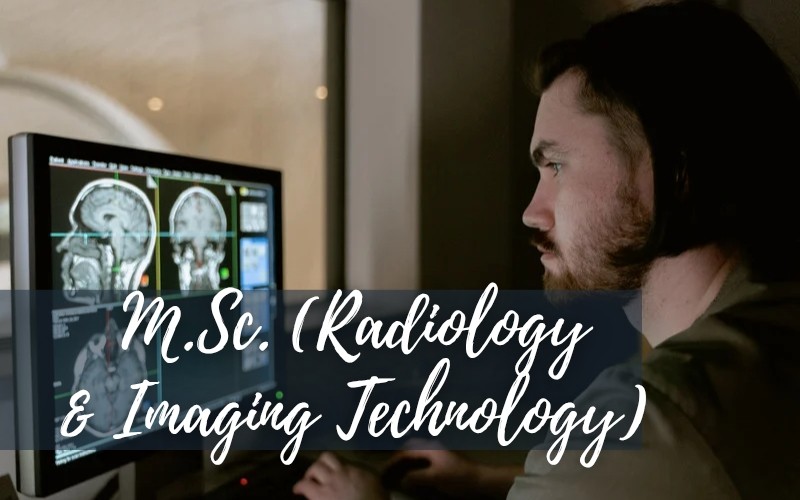Admission Enquiry

The future of healthcare is powered by technology — and radiology lies at its heart. The M.Sc. in Radiology & Imaging Technology at NIILM University is a cutting-edge postgraduate program designed to train skilled imaging professionals who are vital to accurate diagnosis, treatment planning, and patient care.
This program combines advanced academic knowledge with hands-on clinical training in imaging modalities such as X-ray, CT, MRI, Ultrasound, PET, and more. With a growing demand for diagnostic expertise in hospitals and diagnostic centers, this course opens the door to a highly respected and fast-evolving career.
Industry-Relevant Curriculum
Focuses on radiographic anatomy, imaging physics, cross-sectional imaging, image interpretation, and diagnostic safety.
Advanced Lab & Clinical Exposure
Access modern imaging equipment and real-time training through NIILM’s healthcare partnerships and diagnostic center tie-ups.
Expert Faculty & Mentorship
Learn from experienced radiologists, imaging technologists, and healthcare scientists.
Technology-Driven Approach
Stay ahead with training in PACS, image processing software, and digital radiography systems.
Research & Innovation Opportunities
Engage in research projects involving imaging advancements, AI in diagnostics, and radiation safety.
Radiographic & Cross-Sectional Anatomy
Physics of Radiological Equipment
CT & MRI Imaging Techniques
Ultrasonography & Doppler Imaging
Nuclear Medicine & PET Scanning
Interventional Radiology
Image Processing & Quality Control
Radiation Protection & Patient Safety
Radiology & Imaging Technologist
MRI / CT Scan Specialist
Diagnostic Center Supervisor
Application Specialist – Imaging Equipment
Hospital Imaging Department Manager
Research Assistant in Imaging Sciences
Academic/Trainer in Radiology Institutions
Quality Control Officer (Medical Imaging)
The M.Sc. in Radiology & Imaging Technology at NIILM University is designed for students who want to combine medical knowledge with advanced technology to make a real impact in patient diagnostics and care.

Engaging, interactive content designed for modern, digital learning environments.

A well-designed curriculum that fosters skill-building through systematic learning.

Efficient, realtime assessments to track and enhance student progress.

Cutting-edge technology integrated across the campus for an immersive learning experience.

Robust industry connections to facilitate valuable internships and secure placements.

We select the best faculty to ensure exceptional education and expertise.

Focused training aligned with industry needs to boost career readiness.

Access to State-of-the-art computer labs for hands-on technical skill development

Copyrights © 2024 NIILM UNIVERSITY. All rights reserved.